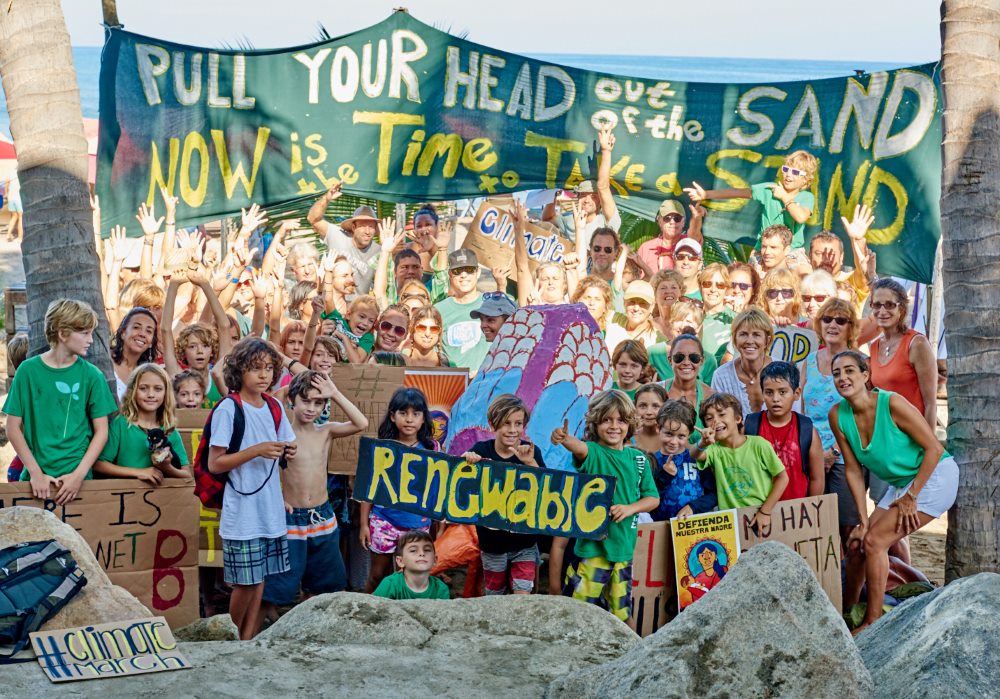On Youth and Future Generations Day, Mary Robinson, President, Mary Robinson Foundation - Climate Justice, calls for intergenerational equity to be considered as a core component of UN activities.
In their latest report on the science of climate change, released last year, the Intergovernmental Panel on Climate Change said that “without additional mitigation efforts beyond those in place today, and even with adaptation, warming by the end of the 21st century will lead to high to very high risk of severe, widespread and irreversible impacts globally”. The end of the century may feel like a very long time away, but there will be infants born today that will see the consequences of the decisions we make in these weeks. To realise intergenerational equity, world leaders must finalise a new, fair and legally binding climate agreement at the 21st Conference of the Parties (COP21) to the United Nations Framework Convention on Climate Change (UNFCCC) in Paris.
But what do we mean by intergenerational equity? When we talk about fairness between generations we are talking about the future of life on this planet. Do we want to achieve peace and equality and eradicate poverty? Or are we content to leave a depleted planet where life is characterised by resource conflicts, worsening inequality, and acute human suffering. The unconscionable distress of people seeking refuge in Europe today illustrates just how grossly underprepared the world is for situations of mass displacement. Yet, within a generation, climate change could contribute to the displacement of as many as 250 million people[1].
With the necessary ambition in its design and implementation, the new climate agreement can secure the rights and wellbeing of present and future generations. Similarly, the Sustainable Development Goals, agreed earlier this year will be crucial to ensuring a safe and prosperous future for all. The legitimate interest held by young people and future generations in the outcome of the multilateral processes overseen by the UN should be systematically considered in the decision making process.
An institutional body that gives voice to the interests of future generations, and whose specific function is to speak for those not yet born, can play an important role in informing long term policy making. The idea of a commission or commissioner for future generations at an international level is an idea that has been around for a long time, since being first suggested by Edith Brown Weiss in 1989.
My preference would be to see a Commission for Future Generations established in the UN system to examine decisions from the perspective of the risks and opportunities they present in the long term, instilling a vision that is inherently intergenerational and mitigating against myopic policy making. A commission would also allow for a geographically balanced approach and ensure that the needs of future generations in industrialised countries are not prioritised over the immediate needs of people in developing countries.
Of course, this would complement, rather than replace, the central role played by the youth constituency in raising the needs of future generations in UN meetings on climate change and sustainable development. I take great encouragement from the spirit of those young people who eagerly embrace their roles as change makers. Strengthening youth engagement and enabling meaningful engagement for young people from all countries is important. This requires the provision of support to enable young people in developing countries to be represented to a similar degree to their developed country counterparts.
The Athenian Oath, taken by all citizens of Athens over 2,000 years ago, finished with the line:
“We will transmit this City not only, not less, but greater and more beautiful than it was transmitted to us.”
We could do worse than applying the same philosophy to how we think about those who will inherit the planet from us – we must do everything in our power to ensure we leave a safer, fairer and more prosperous world for future generations.
[1] McAdam, Jane (2007), Climate Change ‘Refugees’ and International Law
Related Links
Find out more about the Foundation’s Work on Future Generations
Read Prof Henry Shue’s essay on Sharing the Benefits and Burdens of Climate Change Equitably
Read Prof Ravi Kanbur’s essay on Education for Climate Justice


